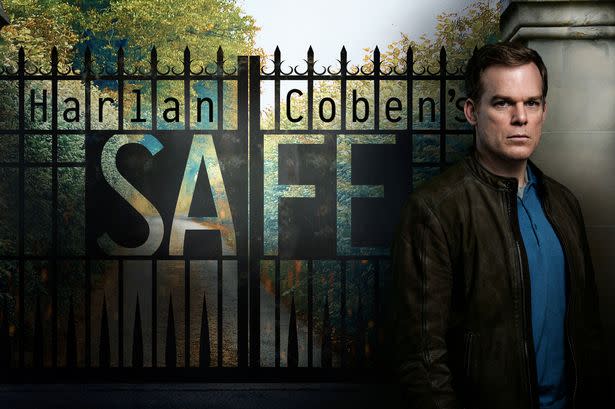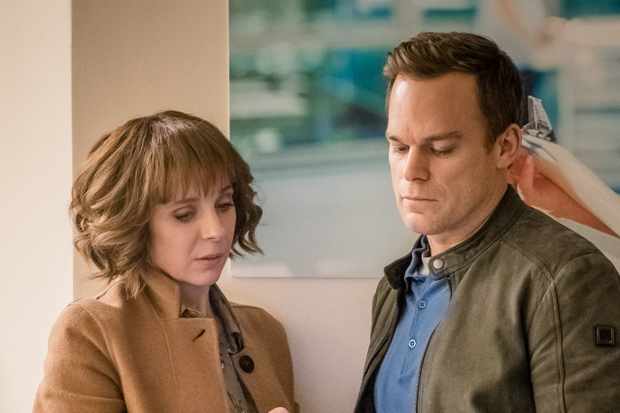Safe’s story of paranoia and secrecy does an impressive job of standing out in a crowded genre

Immediately, Safe arrives in a particularly crowded genre: the specific subset of crime dramas centred on a missing or dead child has dominated recent years, ranging from obvious examples like Broadchurch to more recent attempts like Kiri. In turn, then, an obvious question arose as Netflix came to offer their own take on the format – just how well would Safe stand out?
The answer, which quickly becomes clear, is that Safe does an impressive job at making itself feel distinct. Part of this is because of a clever conceit at the heart of Safe, one which elevates it from something pedestrian into a much more complex thriller – despite said conceit actually being fairly simple. While the disappearance of Jenny Delaney forms the spine of the series, it’s not the only mystery we’re presented with, nor even the first: there’s the accusation that French teacher Zoé Chahal is having an affair with one of her students, the death of Jenny’s boyfriend Chris, and then Jenny’s disappearance, the third part of a wider puzzle. With so many moving pieces, Safe is consistently engaging, easily holding the audience’s attention even in the moments where it feels most familiar.
What’s also notable, though, is the way Safe treats its characters. It’s a given in a crime drama like this that, at some point or another, each member of the supporting cast will become a prime suspect; Safe, for its part, moves the lens of suspicion from character to character in subtle, understated ways. It’s not dictated simply – or, maybe more accurately, it’s not dictated only – by the momentum of the plot, but often lead just as much by the camera itself, even when not addressed by the dialogue. Note how the camera focuses on Pete Mayfield’s car, after it’s revealed that not only has DC Emma Castle been investigating Pete, but that her former partner was killed in a hit-and run; the implication being, then, that Pete was the reckless driver in question.
Doubt is part of the text of the programme, and no one is free from it; Safe even positions Jenny herself as a figure of suspicion in at one point. It’s a clever solution to a problem that’s been endemic to the genre; while such dramas focus on a missing child, the child themselves is always defined by their absence, more an idea than a character in their own right. Safe uses the audience’s detachment from Jenny, and how little they know about her, to evoke a genuine uncertainty – one that neatly feeds into the drama’s wider concerns.

Much of Safe’s tale of paranoia and secrecy comes down to one central idea: how little we know of one another.
It’s stated and restated, addressed overtly in the dialogue and implicitly through the plotline. As Tom Delaney (Michael C Hall) searches for his daughter, he fears he didn’t truly know her; by the end, it’s revealed how little he knew about his late wife, or his new partner Sophie Mason (Amanda Abbington). As the lens of suspicion moves from character to character, that idea is never far from the surface – it feeds into the wider ideas of doubt and paranoia that Safe grounds itself in. The series benefits, of course, from the performance of its two leads throughout, but it’s never more obvious how much Safe is elevated by Hall and Abbington than in their final confrontation. It’s one of the first moments of unguarded honesty in the series, and Abbington is absolutely flawless – if Safe can be said to succeed, it all comes together in that pivotal scene.
Interestingly, the fact that this story takes place in a gated community is a neat metonym for the broader themes of the piece; the gate is a perfect symbol of the façade established in the wake of a crime that, though hidden and repressed for years, eventually prompted Jenny Delaney’s disappearance. Every idea that Safe puts forward about secrecy, and doubt, and suspicion is represented in the gate that surrounds the community – this structure that’s meant to provide safety, but failed to solve any of the real, intrinsic problems. Thus, it’s a shame, then, that Safe doesn’t do enough to emphasis this crucial part of its setting; where the gate should be the central image of the series, something that permeates every scene, it’s actually quite easy to forget the gate is even there at all. Not enough is done, either through the direction or the dialogue, to highlight the gate – and so, while Safe’s ideas aren’t undercut entirely, some of the impact is lost just a little bit.
Ultimately, though, Safe manages to impress; drawing together strong performances from its cast with some compelling ideas that help reframe the format, the series is able to stand out in an increasingly crowded genre. No doubt Safe won’t be the last crime drama in this vein, but on the strength of these episodes, it’s guaranteed to remain a memorable offering.
Related:
The Assassination of Gianni Versace is an intimate portrait of a killer
Collateral is an intimate drama, fascinated by individuals and sceptical of institutions
Like this article? Hate this article? Why not follow me on twitter for more, or send me a message on facebook to tell me what you thought? You can also find more of my articles for Yahoo here, or check out my blog here.

 Yahoo Movies
Yahoo Movies 
